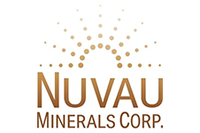Canadian Zinc Says Prairie Creek FS Shows "Notable Improvements"
Compared to the company’s 2016 PFS the report indicates a higher mining rate, lower operating costs and lower treatment charges.
Vancouver-based Canadian Zinc (TSX:CZN) released a feasibility study (FS) for its Prairie Creek mine on Thursday (September 28).
The report includes a number of improvements over a preliminary feasibility study (PFS) completed in 2016, such as a higher mining rate, lower operating costs and lower treatment charges. Because of those changes, Prairie Creek will be able to produce higher amounts of zinc, lead and silver at a faster pace and for less money.
“[The FS demonstrates that] the capacity of the mine can be increased from 1,350 to 1,600 tonnes per day and the mill from 900 to 1,200 tonnes per day, producing more metal at a faster rate than projected in the 2016 PFS,” said Alan Taylor, COO of Canadian Zinc.
“The optimized mine plan, combined with an increase in mill throughput, a simple and effective flow sheet, and new reagent scheme will significantly increase metal production and lower operating costs,” Taylor added.
The Prairie Creek mine is located in Canada’s Northwest Territories, and the new report estimates that its life will reach 15 years. During its first 10 years of operation, average annual metal production is forecast at 95 million pounds of zinc and 105 million pounds of lead.
The FS shows the project has a pre-tax NPV of $344 million at an 8-percent discount and an IRR of 24 percent; its post-tax NPV is $188 million, also at an 8-percent discount, and its IRR is 18 percent.
“Canadian Zinc has to date invested almost $85 million in the exploration, development, environmental assessment and permitting of the Prairie Creek mine and has significantly improved and de-risked the project,” said John F. Kearney, chairman and CEO of Canadian Zinc.
The company estimates that mine construction will take 2.5 years, with mine production projected for mid-2020. However, that is subject to financing, which the company is currently working on. Capital costs for Prairie Creek rose 14 percent compared to the PFS to come in at $279 million, “primarily because of the expansion in mine and mill throughput and accelerated mine development.”
“We are currently engaged in advanced discussions with several finance providers and ongoing engineering and early project work activities are already under way to facilitate a rapid start to construction,” Kearney also said.
Canadian Zinc’s share price jumped 11 percent after the news, and it closed in Toronto at C$0.20. The company’s share price has lost 4.76 percent year to date.
Don’t forget to follow us @INN_Resource for real-time news updates!
Securities Disclosure: I, Priscila Barrera, hold no direct investment interest in any company mentioned in this article.
